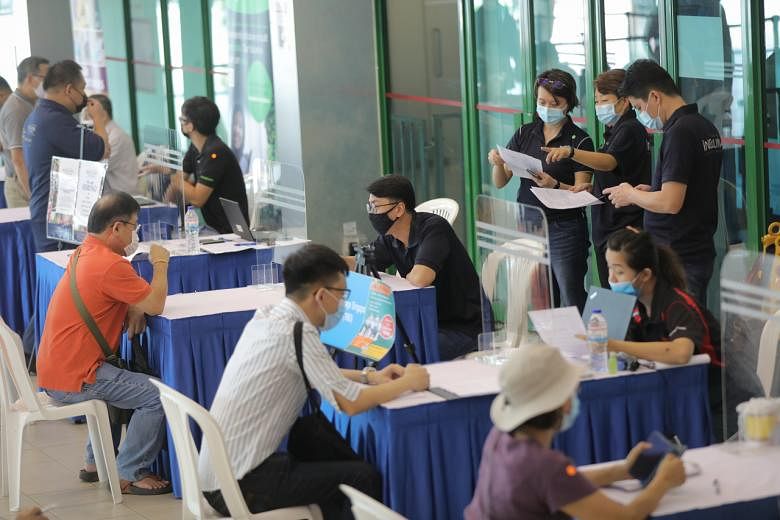SINGAPORE - Singapore's economic transformation amid the coronavirus pandemic and economic downturn cannot come at the expense of its people, especially the more vulnerable in the community.
Speaking during the debate on the President's Address in Parliament on Wednesday (Sept 2), several MPs highlighted groups that must not be left behind as the Republic progresses, such as those with physical or mental disabilities, seniors, low-income families and displaced workers.
Mr Sharael Taha (Pasir Ris-Punggol GRC) said businesses must do their part to provide fair opportunities for workers.
Citing a resident who lost a foot to diabetes and is now immobile, Mr Sharael said new norms of work amid the current crisis mean that this resident, being alert and mentally capable, is as productive as an able-bodied person.
Yet, he found it difficult to land a job, he said. Mr Sharael called for more inclusiveness in employment opportunities for seniors and the less-abled, as well as caregivers.
The Government, businesses and citizens must also work together and expand opportunities for Singapore's senior workforce, he said.
Similarly, Mr Alvin Tan, Minister of State (Trade and Industry, Community, Culture and Youth), focused on the need to do more and foster an inclusive society for those with mental and physical disabilities.
In his speech, Mr Tan cited how a resident refused to call the Ministry of Social and Family Development helpline because she felt it was shameful to do so. He said there is a need for inclusive policies and norms to ensure that people feel safe and unashamed to use mental health resources.
Ms Cheryl Chan (East Coast GRC) said groups like vulnerable seniors, families with little financial support and people with special needs are particularly affected in coping with the pressure and stress brought about from the challenges from the external environment.
She asked: "While state resources have always largely been channelled to assist the vulnerable and the low-income groups, have we considered what other safety nets do they require or what may make them feel more comforted in knowing they are not left behind as Singapore progresses?"
Singaporeans also need more than financial aid as they rebuild their lives post-Covid-19, Ms Chan said, adding that emotional support and ground-up initiatives are the "non-official but necessary additional safety nets that will truly make a difference to people's lives".
Meanwhile, Progress Singapore Party Non-Constituency MP Hazel Poa called for an enhancement to the Covid-19 Support Grant, such that it can offer financial assistance for a longer period of time to those affected by the pandemic.
"Otherwise, there will be much anxiety and pain in many families, which will in turn slow down our recovery," she said.
The Covid-19 Support Grant provides up to $800 a month for three months to Singaporeans who are unemployed or have suffered significant income loss due to the pandemic.
Ms Poa also suggested allowing Central Provident Fund members who have lost their jobs to borrow from their own CPF accounts, to cope with the financial stress amid the Covid-19 crisis.
These loans can be repaid after finding new employment, she said.


